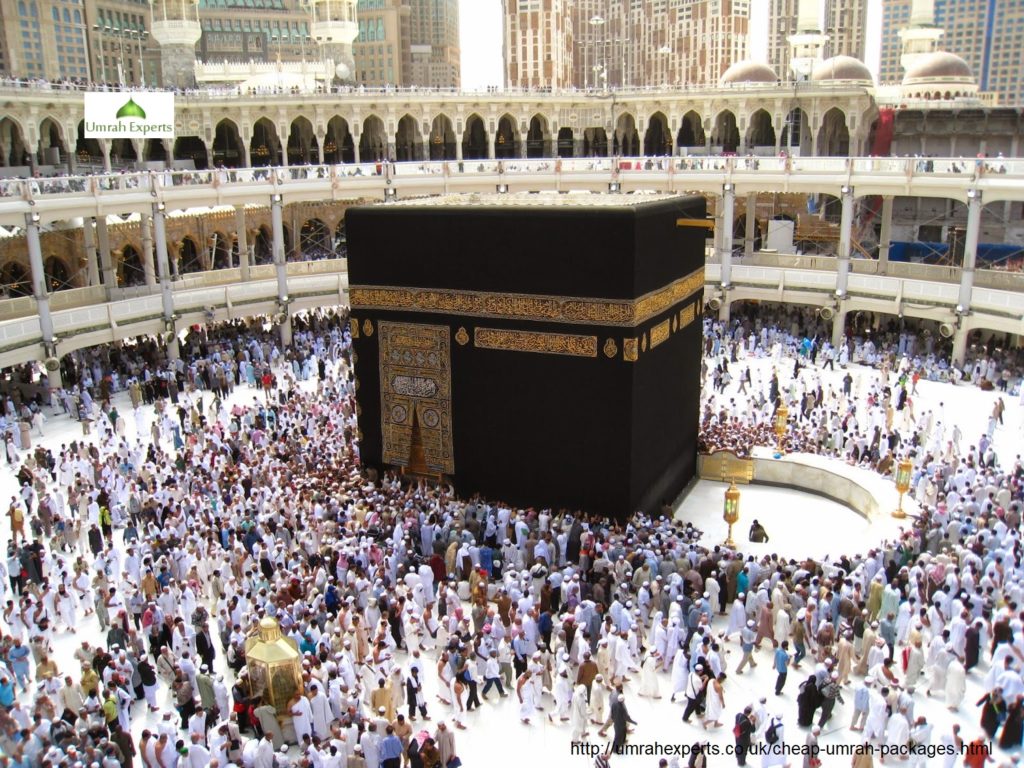Should the few rich squander their resources on baseless ritualism and extravagant weddings, when the average Muslim subsists on a daily income of Rs. 70 a day?

By A Staff Writer
Chennai: A recent study highlights that Indian Muslims spend nearly Rs. 15,000 crore on repeated Hajj and Umrahs to the holy places in Saudi Arabia. Some activists from Chennai and Hyderabad have come together to persuade members of the more affluent sections within the community to divert their surpluses instead towards charities to be spent on the educational uplift and economic betterment of the underprivileged sections within the community.
Chennai based scholar A. Faizur Rahman, who has been taking up issues that afflict the Muslim community in popular newspapers, says, quoting conservative estimates, that a little over 250,000 Muslims from India travel to Saudi Arabia to visit the holy places for Umrah every year. Each such trip costs an individual around rupees two lakh. Going by these statistics, the total annual spending by the community on Umrah, which is not an obligatory ritual, comes to a whopping Rs. 4,100 crore. This amount is just a little lower than Rs. 4,535 crores which were allocated by the Union Government to the Ministry of Minority Affairs.
It is useful to be reminded that Umrah is an optional ritual. The Holy Prophet himself performed Umrah only on four occasions. It is customary for Muslims to perform Umrah if they happen to visit the holy city of Makkah or if visiting someone in cities in vicinity of the place. Those who go for the Hajj, which is obligatory just once in a lifetime, the Muslims generally perform an Umrah or two during their stay. But the Government of Saudi Arabia has been promoting Umrah pilgrimage to prop up the economy of the eastern region, which has traditionally revolved round the visit to the holy sites. Currently, the Saudis have come under a financial crunch and have gone on an overdrive to promote the lesser pilgrimage as a pleasure trip. In fact, most of the hotels, transport networks and guides and escorts groups are owned by individuals from the leviathan princely family.
Faizur Rahman approaches the issue from a secondary route too. He says that around 4.50 lakh Muslims applied for Haj during 2017. Of this, around 1.80 lakh were permitted to undertake the pilgrimage. (The Government of the Saudi Kingdom has hiked the number of Hajj visas to two lakh for Hajj-2019). It is therefore reasonable to presume that the ratio between aspirants and those who eventually perform the Hajj works out to 2:1 i.e., of every two applicants, only one ends up fulfilling the life’s dream. Rahman takes this as a sign of 450,000 Muslims having the capacity to spend around Rs. 2.50 lakh every year on pilgrimage. This works out to more than Rs. 10,000 crore. If this is added to the community’s annual spend on Umrahs, one arrives at the figure of Rs. 15,000 crore. “Even if a small portion of this amount is to be diverted for humanitarian causes, it will come under the definition of effective altruism, which, by the way, is not out of sync with the egalitarian teachings of Islam”, asserts Rahman.
Rahman says that as of now, the only beneficiaries of this expenditure are tour operators, airlines and oil-rich Saudi tycoons. It is beyond comprehension that such huge sums could be spent annually at a time when all indices of the socio-economic conditions of the Indian Muslim community in comparison to other social components of Indian population are pointing downwards, as has been highlighted by the Sachar Committee Report.
New Fad by the Rich
As can be seen, performance of Umrah has emerged as a new fad among affluent Muslims. Some social activists concerned with the pathetic plight of the underprivileged sections of the community do not feel qualms in even dubbing it a “Holy Picnic”. The crowd of pilgrims in Makkah during the last ten days of Ramzan has begun to surpass the number of Hajj pilgrims, which hovers round 20 lakh. Some scholars equate the Umrah with unnecessary ritualism motivated by a wish to mask one’s inclination to spend on oneself with religious devotion which Islam neither desires nor prescribes. Evidently, most of the expenses are incurred on air travel, stay in expensive hotels, hiring luxurious transport and indulging in consumerist pursuit in the malls of Bin Dawood, Panda or Carrefour. Some Muslims have begun to even conduct the nikah of their offspring in Masjid e Nabawi in Madinah, although no hadith points to such marriages being more blessed in the sight of Allah. In fact, the Prophet directed the ummah to simplifynikah, lest Muslims fall into licentious pursuits.
Ostentatious Weddings
Pointing at yet another avenue of wrongful expenditure, Rahman says an average middle class wedding involves an expenditure of Rs. 6.4 lakh. If one could assume that around 1.5 lakh such weddings take place among Muslim population across India, the expenditure could be computed at Rs. 12,000 crores. Describing it as avoidable expenditure, he says the community needs introspection as to where its resources are being placed and what the priorities are. He asks, ‘Are the few rich justified in devoting huge resources for Umrahs and weddings when around 120 million Muslims are forced to subsist on an income less that Rs. 70 a day?”

COMMENTS